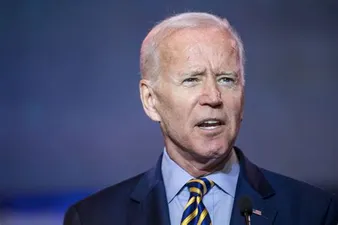


When Joe Biden assumed the office of the President of the US in 2020, there was some apprehension in India that his earlier campaign rhetoric against India’s Citizenship Amendment Act may impact India-US relations. It didn’t happen obviously because as President he would have been briefed about the actual situation, that the CAA did not impact India’s minority population and was just a procedure to fast-track the citizenship of persecuted minorities arriving from neighbouring countries. But unlike Biden, the extreme left “progressive” section of the Democratic party never stopped hurling ludicrous charges at New Delhi. The charge that India is about to commit the genocide of 200 million Muslims was hurled even this week by Democratic Congresswoman Ilhan Omar. However, the so-called progressives have not been able to impact US policy towards India, primarily because no government can afford to allow ideology or domestic politics to dictate governance, in this case, foreign policy—where real or imagined follies can be weaponised to target particular countries, provided the targeting suits the interest of the administration. What ultimately matters to any government is the value a particular country brings to the table. It is in this vein that we have to see incoming US ambassador Eric Garcetti’s views against the CAA during his 2021 confirmation hearing, which have had many Indians declare him as a bad choice as envoy to a country as critical to US interests as India. In reality, Garcetti should perhaps be accused of ignorance rather than of harbouring malice towards India. So it is likely that he too would have moderated his views by the time he reaches New Delhi.
However, there is no denying that the deluge of adverse rhetoric regularly emanating from the US, particularly the hostile coverage of India by the American media, has not done anything to mitigate the already existing trust deficit in the public discourse, especially in India. Indians, including in the media, who are not privy to the exact nature of India-US relations, are fairly suspicious of the US and believe something that Henry Kissinger may have never said, in spite of claims to the contrary—“to be an enemy of the US is dangerous, but to be a friend is fatal”. Hence, it is no surprise that survey after survey shows that Indians in general consider Russia to be a more reliable partner than the US, and are ready to turn a blind eye to Russia’s egregious violation of the international rules based order. Ironically, it’s in the same India that migrating to the US and obtaining a green card are considered as a major achievement, while Russia figures way down the ladder as a destination for education and employment. But that’s a story for another day.
The short point is, Indians think that the hostile coverage of India by the US media is unfair, and the US has no business meddling in a sovereign country’s affairs. Neither is India an electoral autocracy, nor an authoritarian fascist state where there is oppression of the minorities. No one knows this better than the common Indian. So any remote suggestion by the US administration or media towards this effect, is not taken kindly. When the State Department speaks of monitoring the controversy surrounding Rahul Gandhi’s disqualification from the Lok Sabha, it is taken as meddling by most Indians. In fact the State is often accused of weaponising human rights against India. There is major speculation that it is the State that has ensured that the narrative about the slide in Indian democracy grows, if not directly, but through the media and the so-called watchdogs and ranking institutes. Questions are rising if the problem is because the State is staffed with too many “left-liberal” woke-type people who have internalised the anti-India Sino-Wahhabi rhetoric as their own. So many of the chinks in India-US relations could largely be courtesy the State Department.
In a broader context, apparently, the Joe Biden administration has internalised “wokism” to such an extent that it seems to have started impacting American foreign policy. Recently, State Department spokesperson, John Kirby said that LGBTQ+ rights are human rights and are a part of American foreign policy. According to a report in the New York Post, headlined “White House’s push for woke foreign policy will backfire with our socially conservative allies”, Kirby followed it up by threatening to sanction Uganda if an anti-LGBTQ+ law passed by Parliament was enacted. The report says that in Ecuador the US is funding “drag theater performances”, apparently “to promote diversity and inclusion”; and that in Hungary the USAID is spending money “to help independent media thrive” and promote woke values. Things have gone to the extent of Biden appointing a gay human rights lawyer as ambassador to Hungary apparently to needle conservative Prime Minister Viktor Orban’s government. The question is, when will the current Indian government’s opposition to gay marriage be weaponised as a human rights violation and added to the “sliding democracy” arsenal against India? India may be too big and too important for the US to threaten it the way it would threaten a Hungary or an Uganda, but lest we forget, visas were weaponised by State’s Victoria Nuland even against India when it refused to toe the US line on Ukraine. As a result of which Indians were asked to wait for over 800 days to get a simple visitor visa to the US. The US needs to understand that in democracies, public opinion matters and if the Indian public is alienated because of this consistently hostile narrative building, even the apparently robust India-US relations may take a hit. Somehow and somewhere the message needs to go out that this hostile rhetoric has to be tempered, for one of this century’s most consequential partnerships is at stake.